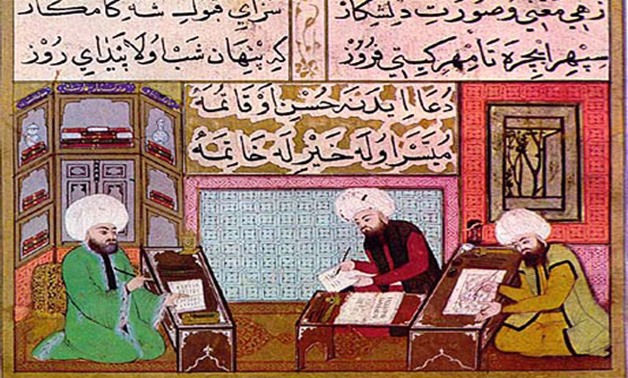mchec.org – Islamic education and scholarship have been integral to the development and preservation of Islamic civilization. From the early days of Islam to the present, the pursuit of knowledge has been a core value, deeply rooted in the teachings of the Quran and the Hadith (sayings and actions of Prophet Muhammad, peace be upon him). This article provides an overview of the educational systems and scholarly traditions that have flourished within the Islamic world.
The Early Period: The Formation of Islamic Scholarship
The foundation of Islamic education was laid in the early Islamic period, with the revelation of the Quran and the teachings of Prophet Muhammad. The companions of the Prophet (Sahabah) played a crucial role in preserving and disseminating this knowledge. As Islam spread, the need for formal education systems became apparent, leading to the establishment of schools and centers of learning.
The Rise of Madrasas: Institutions of Higher Learning
The madrasa system emerged as a pivotal institution in Islamic education. Originating in the 11th century, madrasas were centers of higher learning that focused on Islamic law (Sharia), theology, Arabic grammar, logic, and other subjects. These institutions were often attached to mosques and were funded by endowments (waqf). The curriculum was structured, and students were awarded certificates (ijazah) upon completion of their studies.
The Golden Age of Islamic Scholarship
The Islamic Golden Age, spanning from the 8th to the 14th century, was a period of remarkable scholarly activity. The Abbasid caliphs, particularly Harun al-Rashid and Al-Ma’mun, were patrons of learning, leading to the establishment of the House of Wisdom (Bayt al-Hikma) in Baghdad. This was a library and a translation center where scholars from various cultures translated works from Greek, Persian, and Indian into Arabic.
During this era, scholars like Al-Khwarizmi, Al-Razi, Ibn Sina (Avicenna), and Al-Farabi made significant contributions to mathematics, medicine, philosophy, and other fields. The works of these scholars were later translated into Latin and had a profound impact on the development of European science and philosophy.
The Spread of Knowledge: Libraries and Books
Libraries were central to the Islamic scholarly tradition. They housed thousands of manuscripts, covering a wide range of subjects. The library of Al-Hakam II in Cordoba, for example, contained over 400,000 volumes. The production and trade of books were also significant, with centers like Baghdad, Cairo, and Cordoba becoming hubs for the copying and selling of manuscripts.
The Role of Sufism in Islamic Education
Sufism, the mystical dimension of Islam, played a crucial role in Islamic education. Sufi masters (sheikhs) imparted spiritual knowledge to their disciples (murids) through teachings, poetry, and music. Sufi orders (tariqas) established lodges (zawiyas or khanaqahs) where seekers could learn and practice Sufism. These institutions also provided social services, such as education and healthcare, to the community.
The Impact of Colonialism and Modernization
The advent of colonialism and the modernization efforts of various Muslim states in the 19th and 20th centuries had a profound impact on Islamic education. Many traditional institutions were either dismantled or reformed to fit the needs of the modern state. Despite these changes, Islamic scholarship continued to evolve, with scholars engaging with modern sciences and technologies while preserving traditional knowledge.
Conclusion
Islamic education and scholarship have a rich history that spans over 1400 years. From the early days of Islam to the present, the pursuit of knowledge has been a hallmark of Islamic civilization. The establishment of madrasas, the contributions of scholars during the Golden Age, and the role of Sufism are just a few examples of the diverse and dynamic nature of Islamic education and scholarship. Today, as the world becomes increasingly interconnected, the values and traditions of Islamic education continue to offer valuable insights and guidance for the global community.

